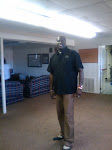If we walk into any market to buy goods, we find labels everywhere. Although many are colorful and seemingly nonsensical, they have a purpose. The purpose is not only to name a product, but to give a description. Take any can of soup for instance. It will tell you, among other things, the name of the corporation who makes it, what the main ingredients are, and the nutritional value. Thank God for the label, right? Now, we know what we are eating and who made our product. Without the label, if we open a can wanting Chicken Noodle, we might get Beef Stew, Clam Chowder, or anything other than what we had the taste for. Also, we can prevent an allergic reaction due to the ingredient product knowledge the label provides. Useful, huh? So useful are the labels that we may group an entire product line by the most popular label. Mom may tell you to eat Campbells when sick, but she just means soup in general. Kids may ask for Kool-Aid when any powder-flavored drink will suffice. Teenagers often call any effervescent, dark-colored drink Coke. And how many times have you been told to Xerox something when the person really meant copy?
Actually, manufacturers and advertisers know the power of labels. You may recall being asked to save Campbell soup labels as a child. The goal was to bring the labels to school for items the soup company would provide to the school based on the number of labels submitted. What did this accomplish? Parents would buy that brand of soup for the labels. Schools would print that brand name on handouts sent home to parents notifying them of the "soup drive." But most importantly, the label made the child remember that brand at an early age. Now, as adults, they probably still buy that brand of soup. At this point, the label brings about a reaction. Yes, a familiar labeled soup may bring warm feelings of mom when you were sick or cold. A familiar label on a medicine bottle may bring negative feelings of the ailment as well as the side effects.
What does all of this tell us? Labels are important for products. They inform, bring familiar feelings, aid in remembering, and can group product lines under one umbrella label. Where labels are inappropriate are on people.
None of us want to be labelled, but we are guilty of labelling others. Like products, "people labelling" gives a description, but it falls short by not allowing the hearer to get to know that individual for themselves. The label is used to bring familiar negative feelings and group people together adversely. It gives the hearer little information of the individual and helps put the one labelled in a colorless, counteractive light. Just recently, a friend of mine was described by a workmate as "the gay guy." "The gay guy" is his people label. My friend is a lot of things that the people label just doesn't impart. "The gay guy" doesn't tell us that he is a war veteran, a child advocate, a health care professional, a loving parent, nor does it tell us his love for his community that he volunteers for on any level. The people label doesn't even tell us his beautiful mother-given name. But to a group of others looking for a reason to dislike him, "the gay guy" is sufficient. The people label groups him and takes away his individuality. It allows us to know his sexuality, but little else. It gives a loving, caring, complex man a three word useless description to be used only for the purpose of a familiar, albeit negative, reaction of the listener.
Not long ago, my wife and I were referred outside of our names that our parents took the time and concern to mull over before writing them on our birth certificates. We were people labelled, "the Black people." The label was given along with a negative stereotype. The user stated in full that "the Black people in the room were too loud." Our people label is "the Black people." This was offensive not because I am ashamed of my race. Just as my friend is proud of his sexuality. The user adopted this label to stereotype and group unfavorably, and it is this user's purpose that I resent.
This gives us another problem with people labels. Rarely do they give us a congenial feeling. Less often do they uplift. For instance, why wasn't my friend labelled "the beautiful, kind-hearted man?" Our my wife and I labelled "the faithful couple?" Why is because people labels are judgments placed upon us unwillingly. And, unlike products they refrain from describing what we are made of. Instead they only give a limited view that the user wishes the hearer to see.
In order to better the world around us, we must seek to change ourselves. If we find we prattle to the point of hurting others by labelling, allow ourselves to remove the impulse. We will find that our world around us and our minds will be capaciously broadened. Thus, we will be an asset to our friends and others. We will truly be useful and desired with our thoughts and ideas being implored and solicited by others.
Thursday, October 15, 2009
Subscribe to:
Post Comments (Atom)


No comments:
Post a Comment